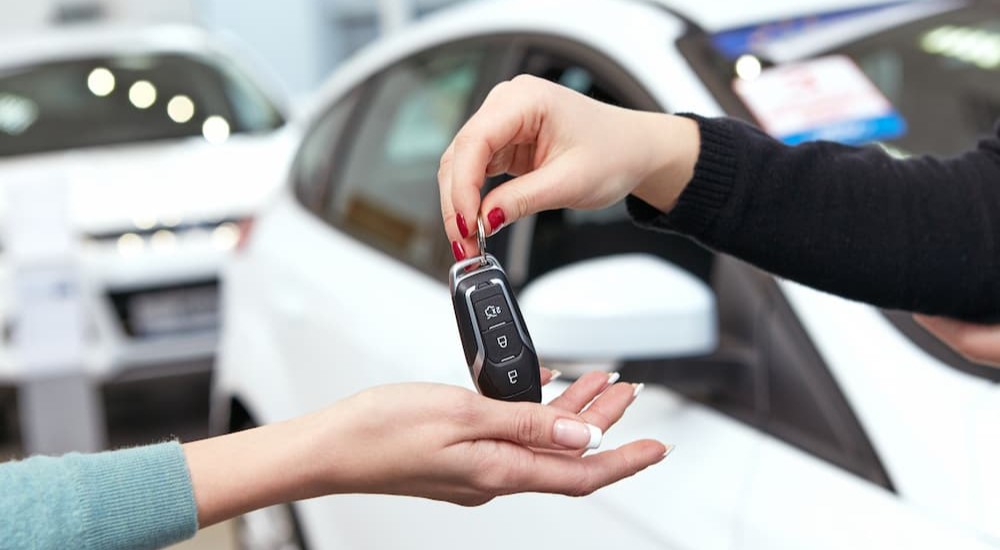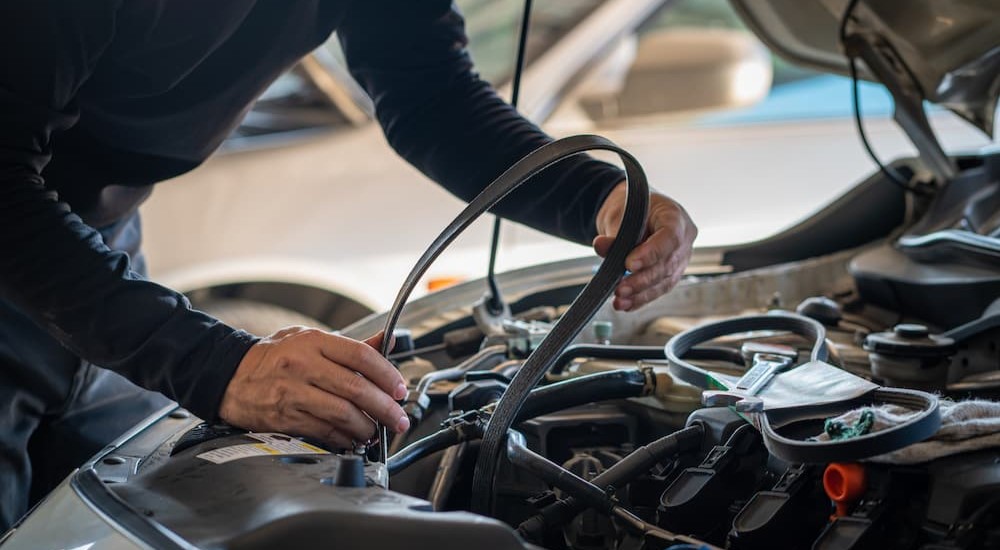It’s always a panic-stricken moment when your car won’t start, and it rarely happens when you have the time to figure it out; usually, it’s when you’re running late that that awful series of events happens: you put the key in the ignition, turn it, maybe hear a slight purr of the engine, a few clicks, and then… nothing.
Many people assume a dead battery is the cause of an engine that fails to start. While that is sometimes the case, there are a lot of other things that could be to blame; you might need an alternator replacement, your spark plugs might be worn out, or it could be something else—so, let’s cover the most common reasons your car won’t start…
1) You Need An Alternator Replacement
We’ll start with the possibility of an alternator replacement. Often, when people bring a vehicle that won’t start into an auto shop (or, rather, when they have it towed there), they believe it’s a dead battery when it’s actually the alternator.
Yes, your battery sends an electrical current to your motor, which then cranks your engine—but it’s your alternator that recharges your battery, so if your alternator goes out, your battery will fail to recharge. In that case, the dead battery is a result of the alternator problem, but the battery itself isn’t the issue; fix the alternator, and you’ll find that the battery works just fine.
So, what are the signs of an alternator that’s about to give out on you? Because the alternator powers all electronic accessories in the vehicle, you can see signs of its deterioration through things like a poorly working air conditioner, unresponsive power windows, or dim headlights.
2) Your Starter Motor Is Struggling
We mentioned that the motor cranks the engine after receiving a current from the alternator, but if the starter motor is having problems, your engine won’t start. Diagnosing this issue can be fairly simple; since we now know that the alternator powers your headlights, then you know that if the headlights turn on but not the engine, then by process of elimination, it’s likely not the alternator but the starter motor.
3) Your Key Fob Battery Is Dead
If you start your vehicle via a push-button system instead of putting a physical key in an ignition, that system requires a signal from your keyfob to activate. Your keyfob runs on battery power, and if your keyfob’s battery dies, it won’t communicate with your push-button system.
Keyfob batteries for push-button systems generally last two to four years. Luckily, most manufacturers include a regular, physical key as well for this exact situation (it could be hiding inside your fob), so you should still be able to start your car the old-fashioned way until you can replace your fob’s battery.

4) You Accidentally Switched Gears While Parked
It happens to everyone: you’re having a busy morning, sipping coffee while checking your hair while plugging your phone into the USB port, and you accidentally move the gear shift to drive, reverse, neutral—basically, out of the parked position—before turning on the ignition. As a safety measure, your vehicle won’t start if it isn’t in park mode, so just look down and make sure it is in ‘park’ before starting the engine.
5) Your Steering Wheel Is Locked
Your vehicle is smart, and it knows that you can’t safely operate it when certain things aren’t functioning properly—things like your steering wheel. If your car won’t start, check to see if the steering wheel is locked; it’s possible that you accidentally locked your steering wheel when you last parked it. Many drivers unknowingly yank hard on the wheel when getting out of their vehicle, but this motion can activate a steering lock in some models.
If this happens, put the key in the ignition and turn it very slowly and very gently. When the steering wheel is locked, turning the key too quickly in the ignition could jam it up or break it. Depending on what position your steering wheel got locked in, you’ll need to wiggle it or turn it gently in the other direction. This could take some trial and error.
Note that this only applies to a steering wheel that locks while parked. If a steering wheel locks up while you’re driving, this is a more serious issue, and you should take your vehicle to a mechanic right away.
6) You’re Out of Gas and Don’t Know It
It’s hard to imagine that you’d run out of gas and not know it, but this might not be your fault; if your gas gauge stops working, it won’t accurately report your fuel levels, so you could be nearing empty and think you still have tons of fuel.
Your gas gauge relies on an intricate network of parts that send information from the tank to your gauge; if any of these fail, the fuel levels showing on the gauge won’t be accurate. One early sign your fuel gauge is malfunctioning is that the levels seem to adjust suddenly and drastically, going from ‘full’ one moment to ’empty’ the next.

7) The Timing Belt Is Worn Out
The timing belt rotates essential parts of the engine at precise times to make sure the cylinders fire, but the timing belt is another thing that needs to be replaced somewhat regularly. Depending on your vehicle, your timing belt might last 60,000 to 100,000 miles; if it’s worn out, you’ll hear a ticking sound under the hood when you try to start your car.
8) A Clogged Fuel Filter
Your fuel filter removes debris from your fuel before sending it from your tank to your fuel injectors and, ultimately, your engine. However, if these get clogged, clean fuel will struggle to reach your engine. These clogs can happen for a number of reasons, including using poor-quality fuel* or just not getting your filters replaced often enough. Most fuel filters should be replaced every 30,000 miles, so if you skipped a service, yours might need to be swapped out.
*If the low, low gas prices at that shady gas station seem too good to be true, they probably are.
9) Your Battery Is Dead
Yes, sometimes it is a dead battery. Your alternator could be generating power just fine, which you’ll know because other electrical components will be working; it’s getting that electrical current to your starter motor. You’ll know this because, when you turn your key in the ignition, you hear that chirping sound, which means the starter motor is doing its job—but when all that occurs, the engine just won’t start. This could be a sign of a dead battery.
Pro Tip: If this happens, don’t just accept a battery jump from anyone nearby with any cables. When performed incorrectly, jump starts can actually harm your battery. Plus, this task isn’t as simple as it appears in the movies and when not done by a professional, as it it can be dangerous. When you find that your battery is dead, the best thing to do is call roadside assistance and have a trained technician jump your battery. (Note: This is a temporary solution, as you’ll still likely need to get your battery replaced or at least repaired.)

